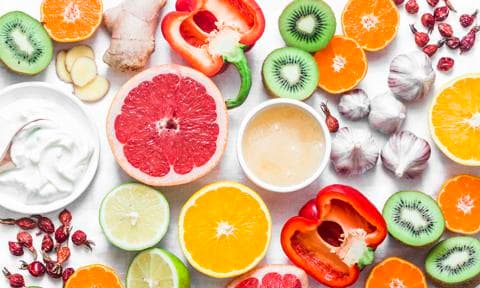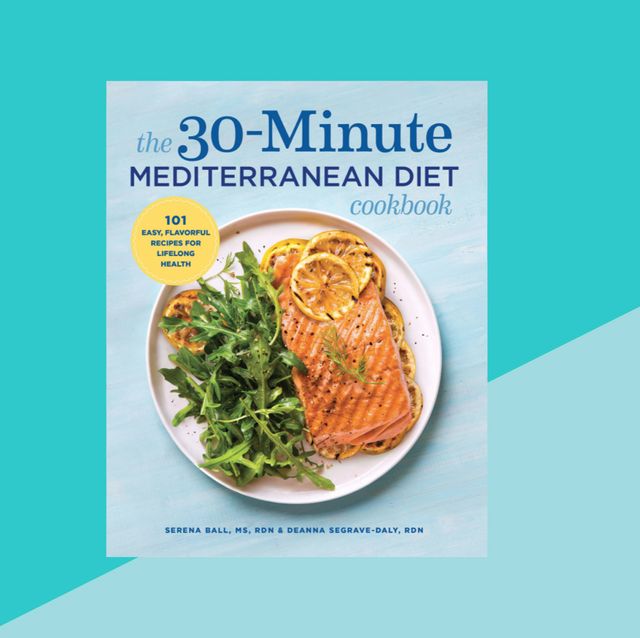
You can prevent heart attacks by knowing the symptoms and seeking emergency medical attention immediately. Blockage of blood flow in the heart is what causes heart attacks. Fatty deposits or other factors can cause a blockage in a coronary vessel. This restricts the blood flow to the heart, starving it of oxygen. In addition, the lack of oxygen can cause tissue damage to the heart.
Lifestyle changes are a good idea if your heart is in poor condition. These include eating healthy foods and managing your cholesterol. Follow the recommended treatment of cardiac conditions.
It's also a good idea to maintain a healthy weight. Being overweight can lead to multiple diseases including heart disease. You should also keep in mind the fact that smoking can increase blood pressure.
A medication to lower blood pressure can help prevent a heart attack. You should discuss with your doctor the possibility of starting medication if you don't already take it. Antiplatelet drugs may also be prescribed. These are medications that prevent platelet clumping. For some, low-dose aspirin may be recommended.

There are ways to reduce the amount of fat that you consume. Atherosclerosis can be caused if you eat unhealthy fats. Increase your fiber intake, which includes fresh fruits and vegetables, instead. Vitamins and minerals are abundant in fruits. Vegetables can be a great source of soluble fiber which can help reduce the risk of developing cardiovascular disease.
Low-fat dairy products, as well as poultry, are essential for a heart-healthy diet. Avoid foods that are high in sugar and saturated fats. If you must eat meat, opt for lean meats with less than 10 percent fat.
Active lifestyle can help reduce the risk of heart disease. Aerobic exercise like walking or running can improve blood flow. Likewise, eating a healthy diet can help to decrease inflammation in the body.
You should also limit the amount of alcohol you consume. The consumption of alcohol can raise blood pressure. People who consume more than 2 drinks per day are at greater risk of developing heart disease.
High amounts of saturated fats or sodium in foods can increase the risk of developing heart disease. Processed foods are often high in these substances. Whole grains, legumes, as well as fruits should be consumed more. Sleeping seven to nine hour a night is a good goal. You are at a lower risk for high blood pressure and diabetes if you get enough sleep.

Your healthcare provider will be able to help you create a diet plan that suits your needs. Your healthcare provider might also recommend lifestyle modifications to decrease your risk of suffering a heart attack.
Changes in your diet are one of the best things you can do for a heart attack prevention. Consuming processed foods can lead to inflammation. To avoid this, switch to a healthy diet that is filled with fresh fruits, vegetables, and low-fat dairy products.
FAQ
Do I have to count calories?
You might be asking "What is the best diet?" or "is counting calories necessary?" Well, the answer depends on several factors including your current health status, your personal goals, your preferences, and your overall lifestyle.
The Best Diet for me - Which One Is Right for You?
My personal health, goals, lifestyle and preferences will all influence the best diet. There are many good and bad diets. Some work well for certain people while others don't. So what do I do? What can I do to make the right decision?
These are the questions that this article attempts to answer. It begins by briefly describing the different diets available today. After that, you will learn about the pros and disadvantages of each type. Finally, we'll discuss how to select the best one.
Let's first take a look at different diets.
Diet Types
There are three types of diets available: ketogenic, high-protein, and low-fat. Let's discuss them briefly below.
Low Fat Diets
A low fat diet is a diet that restricts the amount of fats consumed. This is achieved by reducing saturated fat intake (butter, cream cheese etc.). They should be replaced by unsaturated oil (olive oils, avocados, etc.). A low fat diet is often recommended for those who want to lose weight quickly and easily. However, constipation, stomach pain, and heartburn can all be caused by this type of diet. A person may also experience vitamin deficiencies if they don't get enough vitamins.
High Protein Diets
High protein diets restrict carbohydrates in favor of proteins. These diets typically have more protein than other diets. These diets are designed to build muscle mass and help you burn more calories. However, they might not provide enough nutrition for those who need to eat frequently. Also, they tend to be very restrictive, so they aren't suitable for everyone.
Ketogenic Diets
These diets are also known under the name keto diets. They are high in fat, moderately high in protein, and low in carbohydrates. They are typically used by athletes and bodybuilders because they allow them to train harder and longer without getting tired. They do require strict compliance to avoid any side effects like fatigue, headaches, nausea, and headaches.
What is the difference among a virus or bacterium and what are their differences?
A virus is a microscopic organism that cannot reproduce outside its host cell. A bacterium can be described as a single-celled organism which reproduces by splitting in two. Viruses have a very small size (approximately 20 nanometers), while bacteria can grow to a maximum of 1 micron.
Viruses are usually spread through contact with infected bodily fluids, including saliva, urine, semen, vaginal secretions, pus, and feces. Bacteria can easily be spread from direct contact to contaminated objects and surfaces.
Viruses can enter our bodies through cuts, scrapes, bites, or other breaks in the skin. They can also get into the skin through the nose, mouth and eyes, ears as well as through the rectum, rectum and anus.
Bacteria can enter the body through cuts, scrapes burns and other injuries to the skin. They may also come into our bodies through food, water, air, soil, dust, or animals.
Both bacteria and viruses can cause illness. But viruses do not have the ability to multiply within their hosts. So they only cause illnesses when they infect living cells.
Bacteria can cause illness by multiplying in the body. They can spread to other parts of our bodies. That's why we need antibiotics to kill them.
What should my weight be for my age and height? BMI calculator and chart
The best way to determine how much weight you need to lose is to use a body mass index (BMI) calculator. A healthy BMI range should be between 18.5- 24.9. If you want to lose weight, then you should aim to drop about 10 pounds per month. Simply enter your height/weight into the BMI calculator.
This BMI chart can help you find out if or not you are obese.
Exercise: Is it good or bad for immunity?
Exercise is good to your immune system. Exercise increases white blood cell production, which helps fight off infection. You can also eliminate toxins from the body. Exercise can help prevent heart disease and cancer. It can also lower stress levels.
Exercising too often can cause your immune system to be weaker. Your muscles can become sore if you exercise too much. This can lead to inflammation and swelling. Your body then has to produce more antibodies to fight off infection. The problem is that these extra antibodies can cause allergies and autoimmune disorders.
So, don't overdo it!
These are five tips to help you lead a healthy lifestyle.
How can you live a healthy life?
A healthy lifestyle means eating right, being active, getting enough sleep, managing your stress levels, and having fun. You should avoid processed foods, sugar, or unhealthy fats. Exercise can help you burn calories and strengthen your muscles. Get enough sleep to improve your memory and concentration. Management of stress can help reduce anxiety levels and depression. Fun keeps us vibrant and young.
Statistics
- In both adults and children, the intake of free sugars should be reduced to less than 10% of total energy intake. (who.int)
- This article received 11 testimonials and 86% of readers who voted found it helpful, earning it our reader-approved status. (wikihow.com)
- According to the Physical Activity Guidelines for Americans, we should strive for at least 150 minutes of moderate intensity activity each week (54Trusted Source Smoking, harmful use of drugs, and alcohol abuse can all seriously negatively affect your health. (healthline.com)
- Extra virgin olive oil may benefit heart health, as people who consume it have a lower risk for dying from heart attacks and strokes according to some evidence (57Trusted Source (healthline.com)
External Links
How To
How to keep motivated to eat healthy and exercise
Tips for staying healthy and motivated
Motivational Tips for Staying Healthful
-
List your goals
-
Realistic goals
-
Be consistent
-
Recognize yourself for achieving your goal
-
You don't have to give up if your attempts fail.
-
Have fun